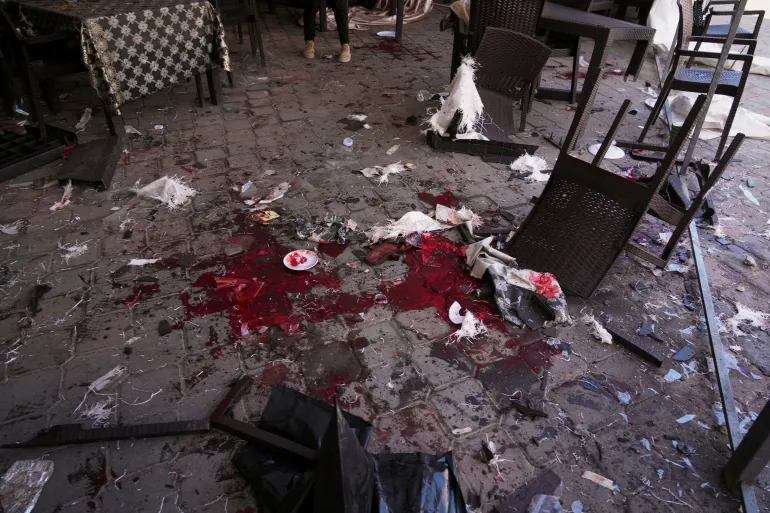In a quiet town in Egypt’s Nile Delta, Hossam Ahmed lives with a void that has only grown deeper with time. His son, Osama, vanished in 2019 at the age of 17. Within weeks, Hossam learned from whispers on the internet that his son had crossed into Syria and allegedly joined ISIS, the so-called Islamic State. It was the last time anyone in his family heard from him. Since then, Hossam’s life has been consumed by a desperate quest for the truth.
What began as a missing persons case has evolved into a painful, years-long fight for answers in the aftermath of ISIS’s collapse. While the world’s attention has moved on from the extremist group’s territorial defeat in Baghouz, northeast Syria, in 2019, the wounds for families like Hossam’s remain fresh, raw, and unanswered.
“They say my son was with ISIS, but no one will tell me if he’s alive, dead, or imprisoned,” Hossam told Al Jazeera. “I just want the truth.”
The final battles against ISIS left thousands of suspected fighters dead or captured. Survivors—combatants, women, and children—were detained in sprawling camps run by the Syrian Democratic Forces (SDF), including Al-Hol and Roj. These camps, barely controlled and chronically underfunded, became the world’s most lawless holding zones, where families of ISIS members lived in legal limbo.
Hossam believes Osama may still be in one of those camps or detention centers. But the Egyptian government, like many others, has refused to repatriate citizens associated with ISIS, leaving relatives in agony and silence. Hossam has tried every channel imaginable: writing to foreign ministries, appealing to international organizations, pleading with journalists, and traveling to Cairo countless times. His efforts have yielded nothing.
“Every door I knock on is closed. Every call for help is ignored. But I won’t stop.”
Egypt’s stance on nationals involved in ISIS is one of complete rejection. Officials cite national security concerns and insist they cannot take the risk of bringing back individuals who may be radicalized. Human rights advocates, however, warn that this policy violates due process, international law, and basic human decency.
Meanwhile, the number of families in Hossam’s situation is staggering. Across North Africa, the Middle East, and Europe, hundreds of parents are searching for their missing children—young people who were recruited, manipulated, or radicalized, and whose lives were swallowed by war. The difference is that while some European nations have slowly begun to repatriate and prosecute their citizens, countries like Egypt remain unmoved.
Hossam doesn’t deny the possibility that his son made a terrible mistake. He is not asking for forgiveness on Osama’s behalf—he is demanding closure.
“If he is dead, tell me. If he is alive, give me the chance to see him, to speak to him. Is that too much for a father to ask?”
His anguish is compounded by the fact that no official will even confirm Osama’s name on any list. The camps are overcrowded, chaotic, and many prisoners are unregistered, particularly those from countries unwilling to accept them. With no formal legal channels, and little media coverage, the families of the missing often become invisible—their grief swallowed by geopolitics.
Human Rights Watch and other NGOs have repeatedly urged governments to stop abandoning their citizens in these legal black holes.
“Holding people indefinitely without trial is a violation of international law,” said Letta Tayler, a senior researcher at Human Rights Watch. “Governments must repatriate their nationals or prosecute them in fair, transparent trials.”
But repatriation remains politically unpopular. Governments fear backlash, especially in cases involving people who joined or were associated with ISIS. The political cost often outweighs the moral obligation—leaving families like Hossam’s in a state of eternal limbo.
Osama, if alive, would now be 23 years old. Hossam says he doesn’t even know what his son looks like anymore. He stares at old photos and replays memories. “He loved football. He wanted to be a teacher. One day, he was just gone,” he whispers.
His story is not just one of terrorism and radicalization, but of parental love caught in the crosshairs of war and denial. It is a human story lost behind security policies and bureaucratic stonewalls.
“I don’t want to defend him. I just want to bury him if he’s dead. And if he’s alive—I want to see his face before I die.”
As Syria’s forgotten prisoners remain locked behind fences, and the world looks away, Hossam’s voice echoes with the cries of hundreds of other parents—seeking not forgiveness, but the simple truth.
Source; Al Jazeera



